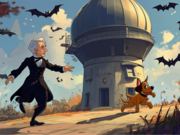也好不了多少
Characters and words in 也好不了多少
also / too / (in Classical Chinese) final particle implying affirmation
也
=
㇆
+
丨
+
乚
:
Mnemonic symbol: the excavator (as in a person with this job), because a plow and a shovel are both tools for moving earth, and a dinosaur bone is what excavators are digging for.
Maud Younger (y) is helping an excavator (也) in the elevator (e3). Together they are excavating a dinosaur bone (丨): Maud turns the earth with a plow (㇆), while the excavator moves the earth with a shovel (乚).
Maud Younger (y) is helping an excavator (也) in the elevator (e3). Together they are excavating a dinosaur bone (丨): Maud turns the earth with a plow (㇆), while the excavator moves the earth with a shovel (乚).
(adverb) also; both ... and ... (before predicates only) / (literary) particle having functions similar to 啊[a5]
good / well / proper / good to / easy to / very / so / (suffix indicating completion or readiness) / (of two people) close / on intimate terms / (after a personal pronoun) hello
good / appropriate; proper / all right! / (before a verb) easy to / (before a verb) good to / (before an adjective for exclamatory effect) so / (verb complement indicating completion) / (of two people) close; on intimate terms / (after a personal pronoun) hello
(as a resultative verb suffix) unable to (do sth) / (pattern: {verb} + 個|个[ge5] + ~) without end; incessantly
(completed action marker) / (modal particle indicating change of state, situation now) / (modal particle intensifying preceding clause)
to finish / to achieve / variant of 瞭|了[liao3] / to understand clearly
了
=
乛
+
亅
:
Mnemonic symbol from "to finish" and the shape of the character: a prize cup.
Li Qingzhao (li) is responsible for manufacturing a prize cup (了). She only needs to add a poetic engraving. Unfortunately, she suffers from a writer's block. In the aorta's living room (ao3), someone left a cryptic message engraved on the walls using a sickle (乛), which is still lying on the floor. Being an accomplished poet Li Qingzhao is able to understand the message clearly (了), realizes its poetic potential and starts to engrave it on the prize cup using a crowbar (亅).
Li Qingzhao (li) is responsible for manufacturing a prize cup (了). She only needs to add a poetic engraving. Unfortunately, she suffers from a writer's block. In the aorta's living room (ao3), someone left a cryptic message engraved on the walls using a sickle (乛), which is still lying on the floor. Being an accomplished poet Li Qingzhao is able to understand the message clearly (了), realizes its poetic potential and starts to engrave it on the prize cup using a crowbar (亅).
many; much / too many; in excess / (after a numeral) ... odd / how (to what extent) (Taiwan pr. [duo2]) / (bound form) multi-; poly-
多
=
夕
:
Mnemonic symbol: Immanuel "Many" Kant.
Many (多) and Doggy Dog (du) have great fun chasing a bat (夕) in front of the observatory (o1). After a while there are two bats (多), and it's not so easy to chase them any more. Suddenly there are more and more (多) bats! Now Many and Doggy Dog experience what it is like to be chased for a change.
Many (多) and Doggy Dog (du) have great fun chasing a bat (夕) in front of the observatory (o1). After a while there are two bats (多), and it's not so easy to chase them any more. Suddenly there are more and more (多) bats! Now Many and Doggy Dog experience what it is like to be chased for a change.
few / less / to lack / to be missing / to stop (doing sth) / seldom
Words with 也好不了多少
也好不了多少
is not used as a component in another word.
Sentences with 也好不了多少
也好不了多少 currently does not appear in any sentence.


